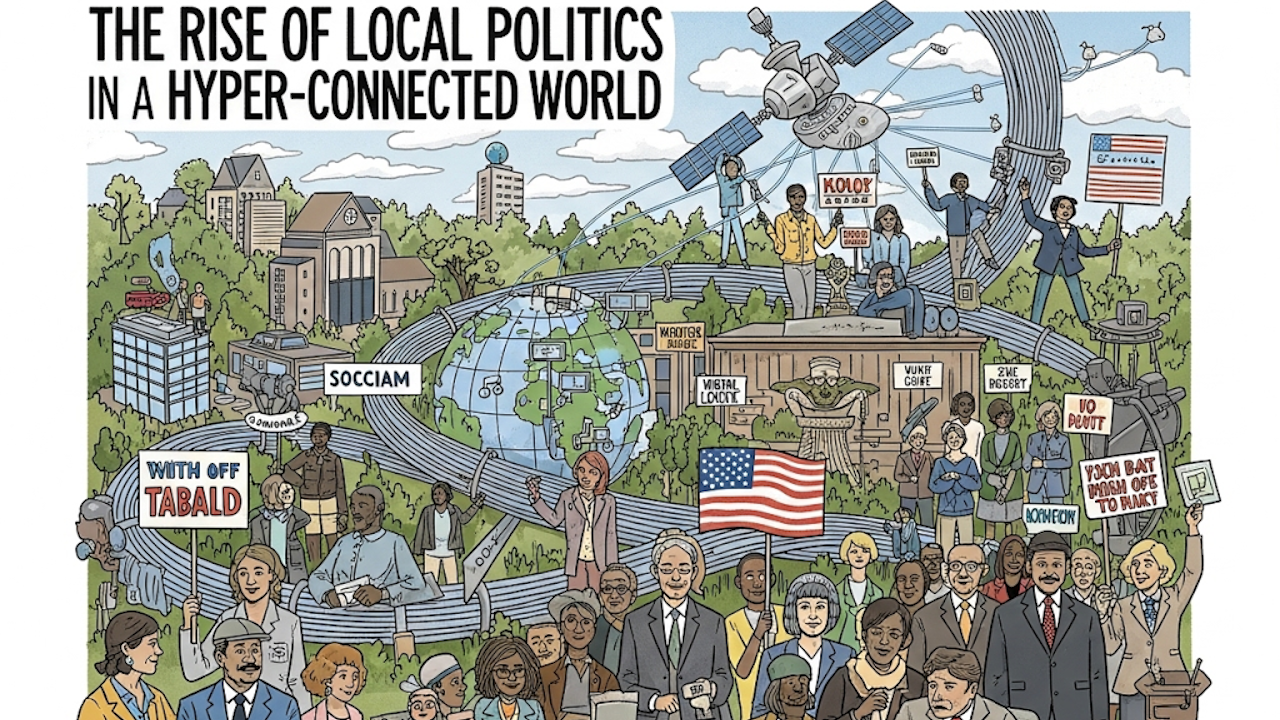In recent years, local politics has experienced a significant resurgence. While global events and national policies often dominate headlines, it is local issues that increasingly mobilize communities and shape everyday life. This rise in local political engagement is taking place against the backdrop of a hyper-connected world, where digital tools, social media, and mobile technology have transformed the way people interact with their governments and with one another.
Historically, local politics was often overlooked, seen as the domain of school board meetings, zoning disputes, and town hall discussions with limited reach or influence. Voter turnout in local elections traditionally lagged far behind national contests, and candidates for local office frequently operated with minimal visibility or public scrutiny. That picture is changing rapidly. The interconnectedness brought on by the internet and the pervasiveness of smartphones has given local politics new visibility and relevance.
One major driver of this shift is the democratization of information. In the past, citizens relied heavily on traditional media to stay informed, and coverage of local affairs was limited to small newspapers or word of mouth. Today, social media platforms and online forums allow communities to share information instantly. Residents can report potholes, livestream city council meetings, and organize neighborhood events all from their phones. Platforms like Facebook, Twitter, Reddit, and Nextdoor have become digital town squares, amplifying local concerns that once remained isolated.
This real-time connectivity enables grassroots activism to flourish. Whether it is a campaign to preserve a local park, protest police misconduct, or challenge a school board decision, individuals and small groups can rally support quickly and cost-effectively. Hashtags and viral posts now carry the power to influence city budgets, bring attention to housing policies, or pressure local officials to act. Movements that begin with a single post can build momentum within hours and gather support across a city or even a region.
Another contributing factor is the growing recognition that local governments wield substantial influence over critical aspects of daily life. While federal legislation may set broad standards, it is local officials who make decisions about policing, public transportation, school curriculum, sanitation, housing, and land use. Issues like climate resilience, traffic congestion, affordable housing, and public safety are deeply local in character. Citizens are realizing that by engaging in local politics, they can make a tangible impact on the conditions they live with every day.
Hyper-connectivity has also changed the expectations placed on local politicians. In the past, local officials could operate with relative anonymity. Now, they are under constant scrutiny. Voters can record and share speeches, fact-check claims in real time, and demand responses through public channels. This transparency has elevated accountability. Politicians who ignore their constituents’ concerns risk immediate backlash. Conversely, those who listen and adapt can build strong community support and even national attention.
Technology has further altered the landscape by facilitating participation in new ways. Many cities now offer digital platforms for community feedback, allowing residents to vote on budget priorities, report infrastructure issues, or propose new initiatives. Online town halls, surveys, and participatory budgeting tools reduce barriers to civic engagement, especially for those who might otherwise be excluded due to time constraints, mobility issues, or lack of childcare.
While this digital shift has brought positive changes, it is not without challenges. The speed of online discourse can lead to misinformation, polarization, and performative outrage. Local debates can become distorted by national narratives or manipulated by interest groups. The algorithms that power social media often prioritize sensational content over balanced discussion, which can deepen divides and erode trust. Local officials must navigate these dynamics while striving to maintain constructive dialogue and informed decision-making.
Despite these risks, the net effect of digital connectivity has been a revitalization of local democracy. The renewed attention on city halls, school boards, and neighborhood councils is fostering a more engaged and informed electorate. Younger generations, who are typically less represented in local elections, are beginning to participate more actively, spurred by digital campaigns and issues that affect their daily lives. Activists who once worked on the fringes now find themselves at the center of local policy debates.
Moreover, the line between local and global is becoming increasingly blurred. Decisions made at the neighborhood level can now resonate globally. A city’s environmental policy may be adopted elsewhere. A local protest can inspire international solidarity. In a hyper-connected world, local politics is no longer confined to a geographic boundary. It is part of a larger, dynamic network of civic action and influence.
In conclusion, the rise of local politics in a hyper-connected world is a testament to the power of community in the digital age. As technology continues to reshape how we interact with each other and with our institutions, local politics is emerging not as a relic of the past, but as a vital arena for innovation, accountability, and meaningful change. By recognizing the importance of local engagement and leveraging the tools of connection, citizens are reclaiming their role in shaping the future from the ground up.

